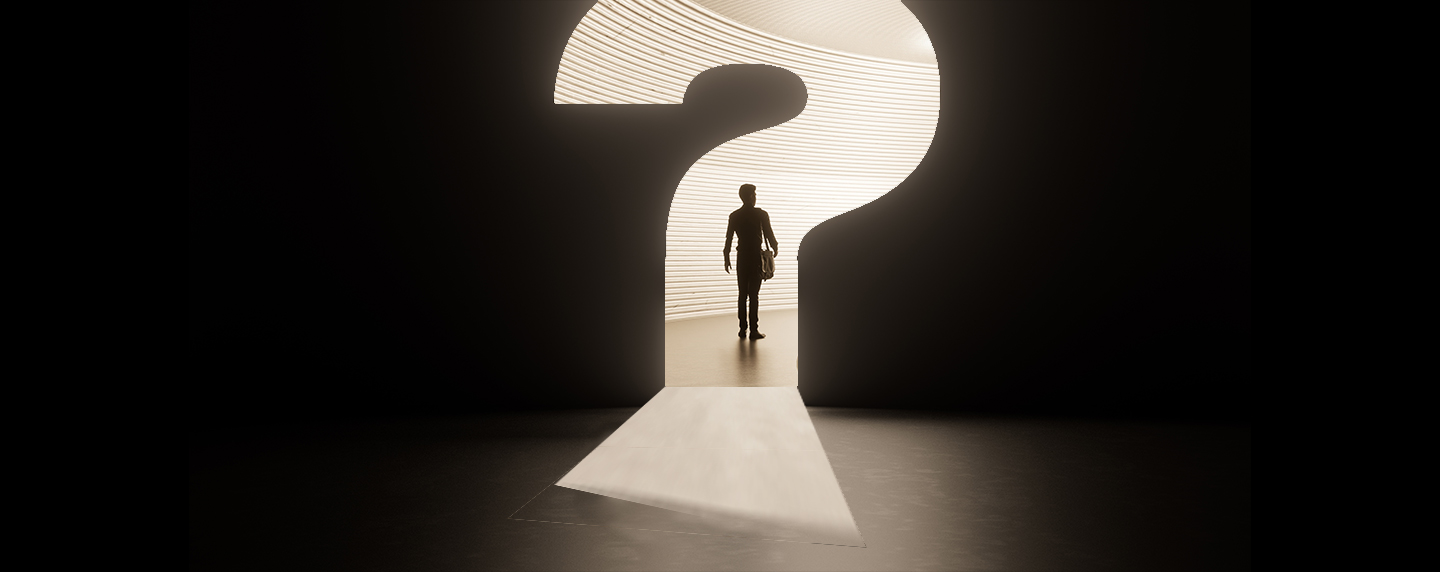For starters, the Catholic Church at the time taught that people who weren’t Catholic would not be able to get into heaven. They’ve since changed their stance on that, as they should have, along with many other doctrines they once propagated among the faithful.
Regardless, back when I was growing up, that’s what the Church taught—that non-Catholics would not be able to make it into heaven.
Only Catholics Can Go to Heaven?
Even then, at that young age, I questioned that teaching.
I wondered, for example, about the Hindus, who probably didn’t have much exposure to the Catholic Church—and Jewish people, the Chinese, Muslims, and most of the rest of the world, who were either alive at that moment, or who had died at some distant point in the past.
Closer to home, I wondered about the new friends I was making in the small southern community where my parents moved us back in 1965, none of whom were Catholic. Would they be able to make it into heaven?
Having been born and raised in New York City and having attended Catholic school since first grade, Catholicism was all I knew. What a shock it was to find that the predominant religions in that small town we moved to were Baptist and Methodist, along with smatterings of Evangelical Christians.
What another shock it was to learn that Catholics in that small town were not held in very high regard. I was always under the impression that we, the Catholics, were the good guys, and they, the Protestants, were the ones whose souls we should be praying for. Why, then, should they be frowning on the Catholics when, for me, it had always been the other way around?
Being Young and Naïve
Of course, I was still young and naïve then, with little worldly knowledge about such questions.
Eventually, I came to learn that a lot of the disdain for Catholics revolved around suspicions over the Church’s rituals as well as the authority proclaimed by the Pope. Quite a number of my friend’s parents even thought that Catholic priests, along with the rest of the Church’s hierarchy of bishops and cardinals, on up to the Pope, were in league with the devil.
Peer pressure being what it is, I admit to wondering if one of these other religions was better than the Catholic religion. Having never before been confronted with anything other than Catholicism, there had never before been any reason for me to ask. But now, that was different.
There were more than religious differences, too, of course, between them and me, not the least of which was my New York accent. I had always thought they were the ones with an accent. But now, I found that it was me who had the accent.
Overall, I was different—as was my brother, who was two grades ahead of me. It’s probably no surprise then that we were both targets of a fair degree of ridicule.
I could go on, but I think you get the picture.
The good news is that I eventually gained acceptance from my peers despite all these marked differences and ultimately graduated from high school relatively unscathed and emotionally intact.
My brother’s story turned out differently, but I’ll reserve the telling of that one for another time.
More Questions About Church Doctrine
As I grappled with my identity, doing what I could to fit in, the notion of Catholics being the only ones able to get to heaven kept gnawing at me. Eventually, more questions arose, such as why the Catholic Church thinks that its priests can convert a cup of wine and a bit of unleavened bread into the body and blood of Christ. I knew that my new-found Protestant friends didn’t believe this, and I wondered why Catholics did.
Then, too, there were the hushed conversations among some of the adult parishioners regarding the infidelity of Catholic priests. Most Catholics dared not speak too loudly about such matters, presumably out of deference to the Church’s authority.
As we know now, all these years later, many of the faithful, like my mother, were in outright denial about the abuse doled out by priests under the cloak of God. I clearly remember her telling me at one point when I brought it to her attention that there’s no way a priest would do such things. Her exact words were: “You shouldn’t even think it.”
There were my Protestant friend’s parents, too, who seemed highly skeptical of the Catholic religion. Though I never had any in-depth conversations with them, it was abundantly clear that because I was Catholic, quite a few were reluctant about their children being friends with me.
That fact certainly weighed on me. But for the most part, I brushed it aside as I involved myself with the more important things at the time—things like getting my driver’s license, getting a date for the homecoming games and the prom, getting good grades, having a steady boyfriend, getting a part-time job, considering which college to attend, and so on.
Still, my doubts about the Catholic Church festered as time went on, likely fueled by the fact that my Protestant friends and their parents seemed to have very different views of religion.
I wondered about attending some other church on Sunday other than my own. But I dared not because, first and foremost, my parents would have been appalled. Aside from that, the Catholic Church taught at the time that it was a mortal sin to miss mass on Sunday. So, even though I doubted, I was not yet ready to put my salvation at risk.
No More Interest in Religion
By the time I got to college, any lingering interest I may have had in attending Sunday Mass, taking communion, going to confession, saying the rosary, or participating in any other form of ritual associated with the Catholic religion came to a halt.
I’m not sure what caused me to finally leap into the unknown, especially given my fear of what might happen to my soul if I did. Regardless, that’s what I did, and the only time I went to Church was when I went home for the Christmas holidays and ventured to Christmas Eve mass with my family.
The good news is there wasn’t much room in my life at that time to worry about religion and the consequences of straying from the clutches of its dogma. At one point, I worked three jobs and held a double major. Plus, I somehow managed to find the time to have a steady boyfriend, who I married soon after graduation.
Somewhat remarkably, that first marriage took place in a Catholic Church. It wasn’t because of any spark within the depth of my soul igniting a religious fervor. It was because my mother wanted me to be married by a priest, and my husband-to-be, whose family had strings attached to the Greek Orthodox tradition, had no objection.
My husband and I never set foot in a Catholic Church again—or any other church, for that matter—during the time we were together.
The marriage eventually ended in a parting of the ways, but that’s another story.
I want to be clear, though, that my drifting away from the “One True Church,” as the Catholic Church referred to itself, is not to say I gave up believing in a God. I just disagreed with the Church’s stand on several of the so-called truths they believed in, and I felt rather strongly that there might be other ways to know God.
A Renewed Interest
My questions about God and our reason for being resurfaced when I lived and worked in Silicon Valley, just north of San Jose, California. It was (and still is) a hotbed of ethnicities, worldviews, and religious beliefs. Plus, the New Age movement, which drew heavily on esoteric traditions, was in full swing.
I was working for a semiconductor company, which, at the time, enjoyed the reputation of being an incubator for most of the other companies that later got spawned in that area. It was, in other words, the grandfather of them all.
I loved working there, not just because it was on the bleeding edge of technological innovation but also because the people who worked there tended to be generally open-minded and welcoming of different points of view.
Unlike in my high school days, I didn’t feel stymied by concerns about fitting in, and I no longer asked myself if one religion was better than another. Everyone fit in, no matter their religion or where they came from, so long as they had the mental capacity to see the world for what it could be rather than for what it was.
And, to a large extent, given our insatiable passion for changing the world and our drive to be creative, work, in a way, was religion—not just for me but for most of my colleagues as well.
In that forward-looking, eclectic environment, I felt entirely at ease exploring alternative points of view on religion and spirituality—not because I was searching to find something that suited me, but because I felt a need to understand more about the world around me.
Fast Forward to Now
It seems that everything must eventually change, though, and for me, it was a job offer to work at a tech firm just outside of Portland, Oregon.
With that, a new chapter in my life began. It’s another story for another time, but let me say that throughout most of the thirty-plus years of this new chapter, I remained curious about whether there is a God and, if so, what God’s nature is.
It wasn’t until my third husband died, however, that I was ready to explore the depth and breadth of religious and spiritual beliefs with a markedly higher degree of intensity.
I was 69 at the time.
Since then, I’ve been searching high, low, and in between for answers to questions that may have no answers.
And now, in addition to asking, “Is there a God,” I also ask myself, “What if there is no God?” “What if we humans have fabricated God in accordance with our various cultural traditions and world views as a means to explain the otherwise unexplainable?”
“What’s next?” I ask myself. “Where is this taking me?”
It seems to me that I’ve been on a very long and winding road spiritual road all of my life, but I’m more eager now than ever before to learn more.







